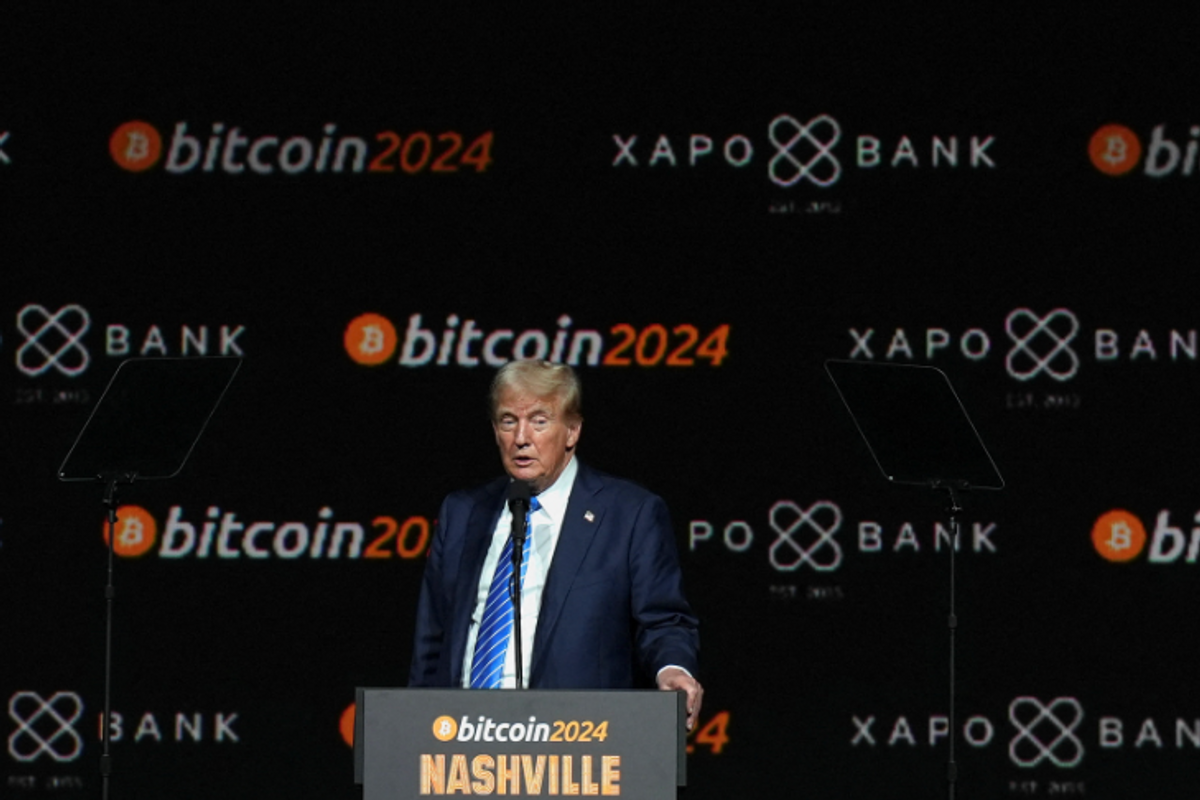'Crypto Coins': Why Trump Never Stops Scamming His MAGA Flock

Former President Donald Trump at Bitcoin 2024 in Nashville, Tennessee on July 27, 2024
With the election upon us, many voters are focused on Donald Trump's unravelling mental state and his radical plans to kill off the democracy. But there should be space to recall his scams victimizing ordinary people and his joy in pulling them off. That speaks to character.
Trump's latest fishy deal involves a crypto operation. But let's start about three decades earlier, in 1995. Trump's Atlantic City casinos were going under, and he needed suckers to bail him out. He thus hawked shares of Trump Hotels & Casino Resorts.
Sophisticated investors regarded a company built on two casinos that had already gone bankrupt as an obvious loser. And so Trump turned to the chumps who bought into his rich-man, spinner-of-gold act. They put $140 million into the company and became a joke on Wall Street.
Trump was stuck with a third casino that was also failing. He persuaded Trump Hotels & Casinos Resort to take it off his hands at a grossly inflated price. By 2004, the bankers had enough and sent the company into a Chapter 11 bankruptcy. For every $10 that his marks invested at that initial public offering, they had $1 left.
Trump's explanation for the collapse in stock price should sound familiar to anyone now listening to his usual excuses: "People don't understand this company."
You heard echoes when he recently appeared before the Economic Club of Chicago. The moderator, citing The Wall Street Journal, asked him about his growing pile of campaign promises that could add almost $8 trillion to the national debt. "What does The Wall Street Journal know?" Trump responded. "They've been wrong about everything."
The year Trump Hotels & Casino Resorts filed for bankruptcy, Trump incorporated Trump University. Students fell for Trump's promise to share his tricks for building a real estate empire. (They presumably were not current on Trump's recent casino fiasco.)
Trump University was "a massive scam," according to the conservative National Review. First off, it wasn't a university. Rather it was a bait-and-switch scheme whereby students were conned into paying a typical charge of $20,000 — "ALL PAYMENTS MUST BE RECEIVED IN FULL" — for basically nothing. They didn't even have their picture taken with Trump, as promised. Instead, they were posed next to a cardboard cutout of him.
Trump was sued up and down and finally agreed to pay a $25 million settlement.
Trump is now trying to draw believers into his sketchy cryptocurrency company, World Liberty Financial. The clear objective is to raise a pile of money through unregistered securities offerings. The tokens are supposed to be sold only to accredited U.S. investors. But as a financial writer for New York magazine reports, "I received an email pushing me to buy them, despite having no accreditation whatsoever."
New cryptocurrency ventures put out what's called a "white paper" detailing their project. Trump calls his a "gold paper." Its cover features a portrait of a stern Donald surrounded by a blotch of what looks like melting gold.
In clear language, it piously notes that Trump, his family and Trump Organization employees may not serve as "an officer, director, founder or employee of, or manager, owner or operator of Word (they didn't bother to check for typos) Liberty Financial."
Under that is a complexly worded paragraph explaining that 75 percent of the crypto coin revenue goes to the Trump family. Trump's son Barron, who just entered NYU as a freshman, has been named one of its "Web3 Ambassadors."
If Trump has so much money, why does he run these grifts? There's a simple answer: It's a game. In his moral universe, a successful scam targeting the little people who buy your story is just good fun.
Reprinted with permission from Creators.
- Exclusive Excerpt From 'The Longest Con,' Joe Conason's New Book ›
- ’Save America PAC’ Is A Scam That Will Pay Trump Millions ›
- Hey Judge! Just Lock Trump Up Already ›








Trump Cabinet Nominee Withdraws Over (Sane) January 6 Comments